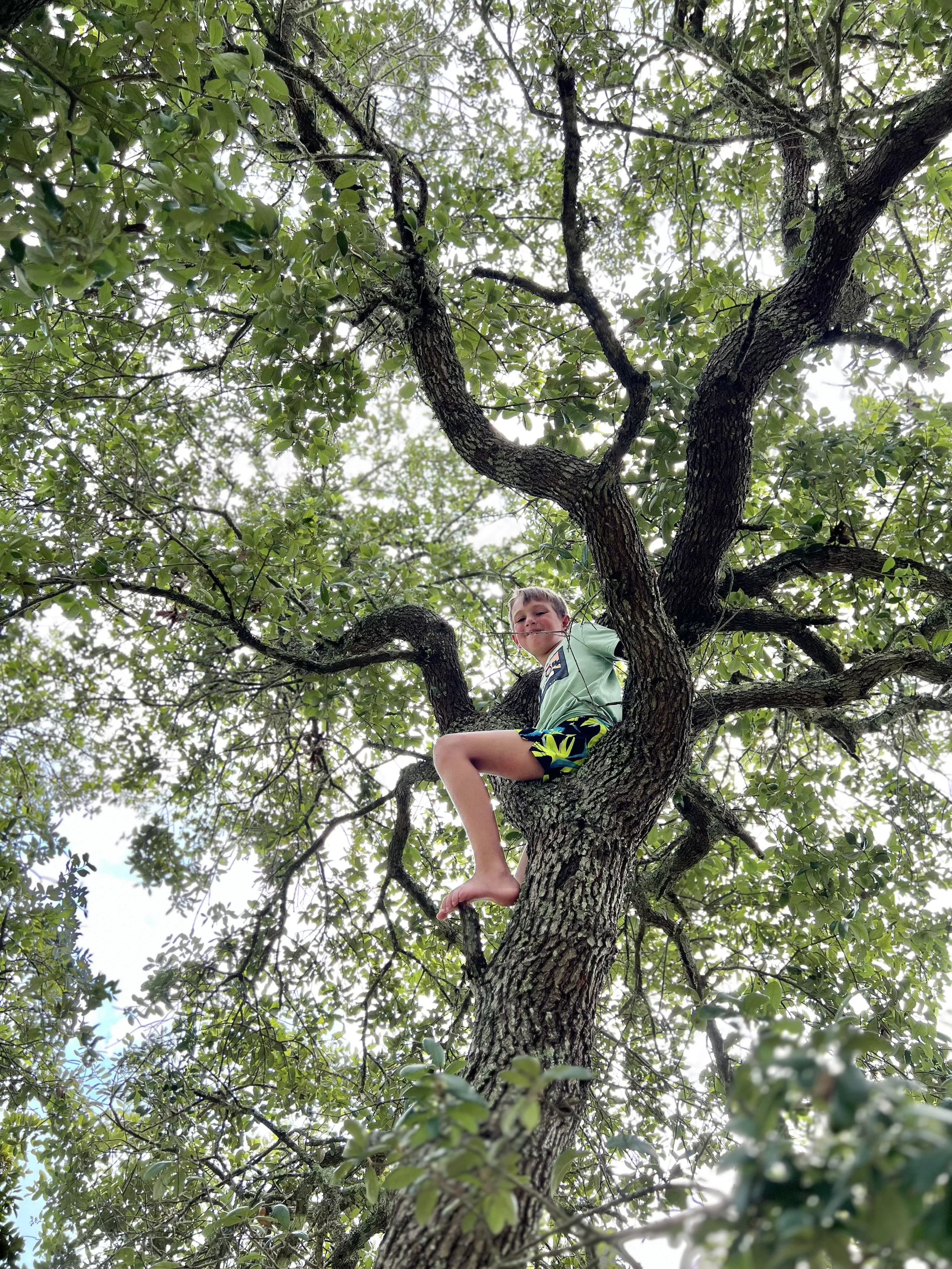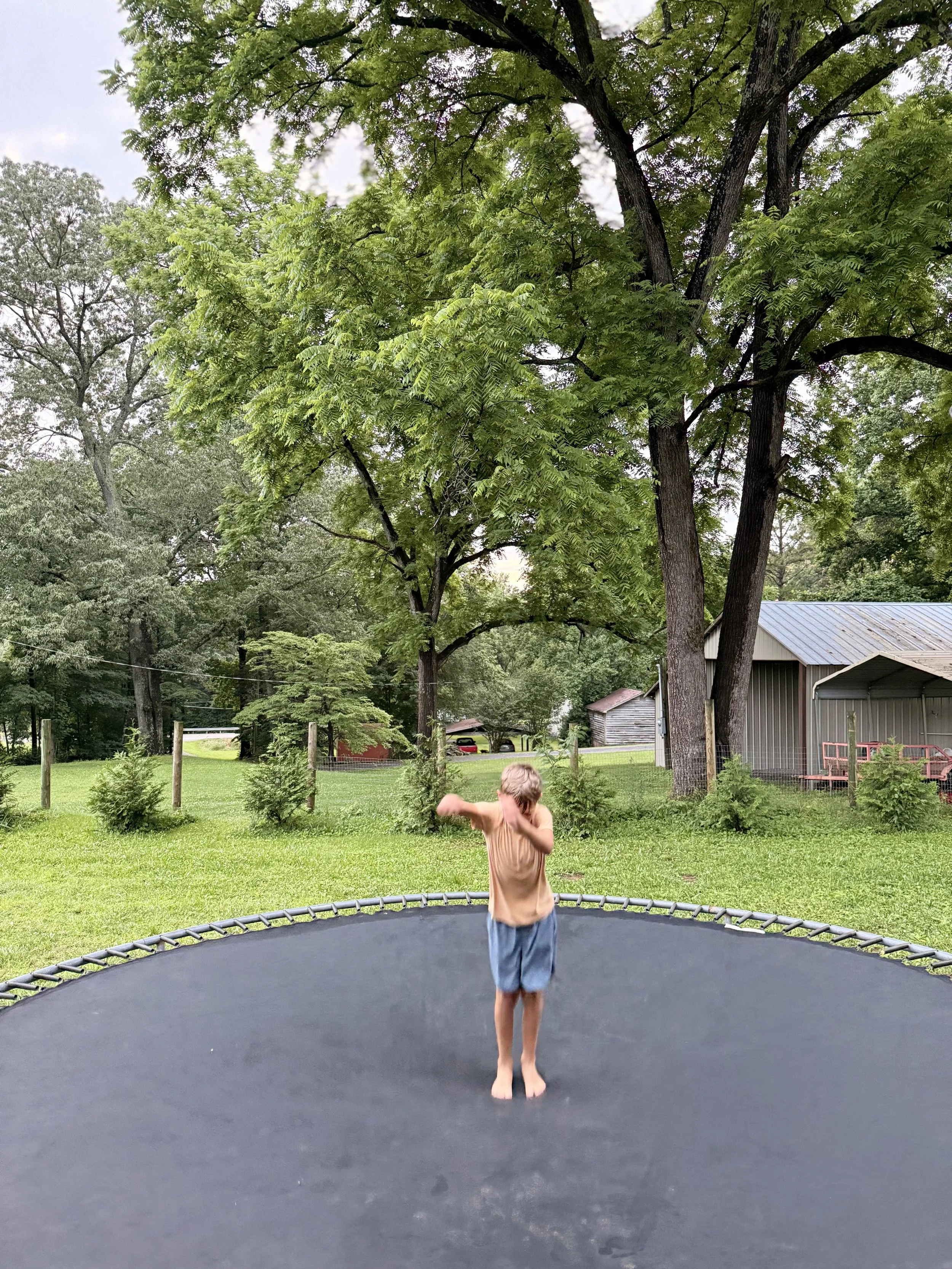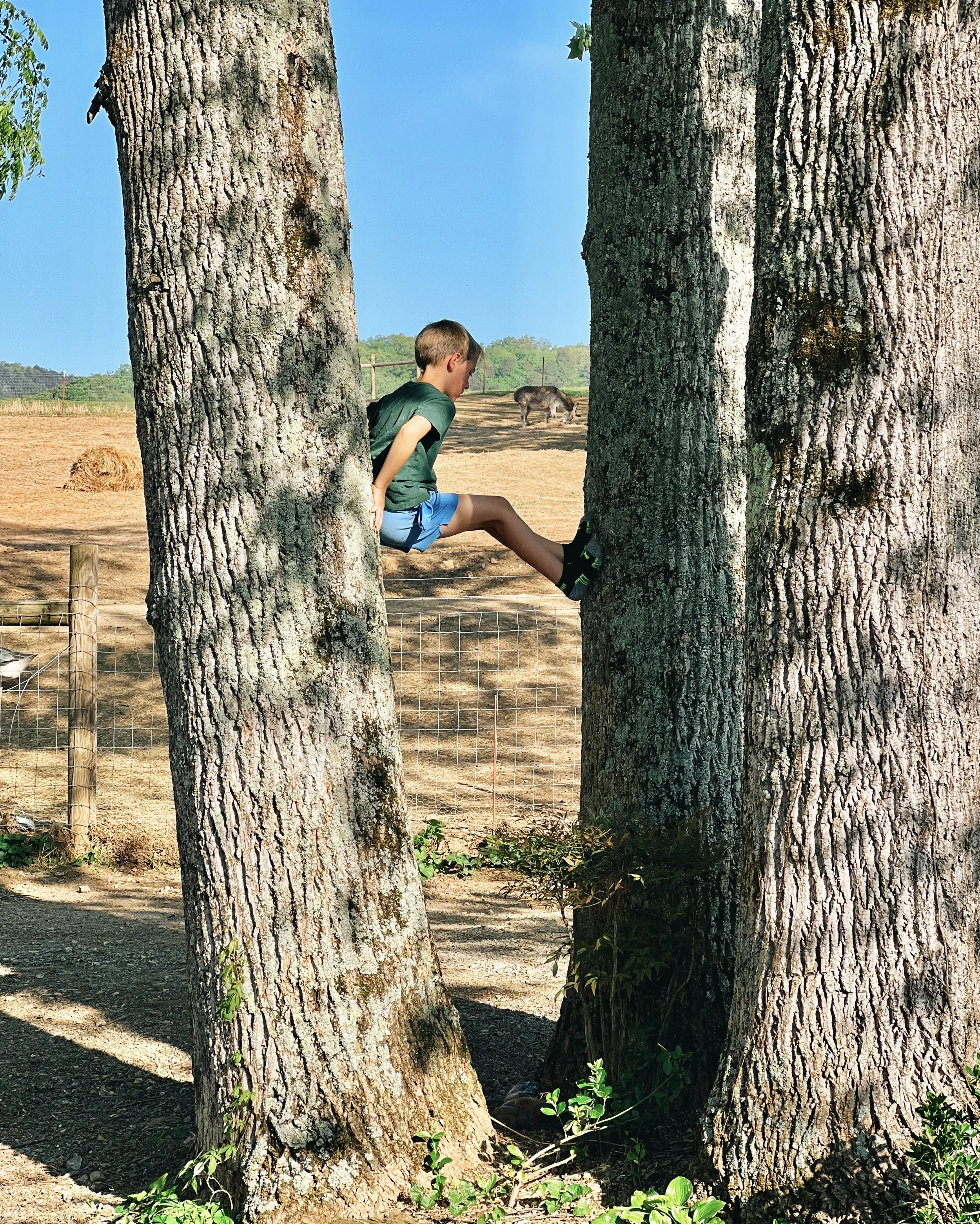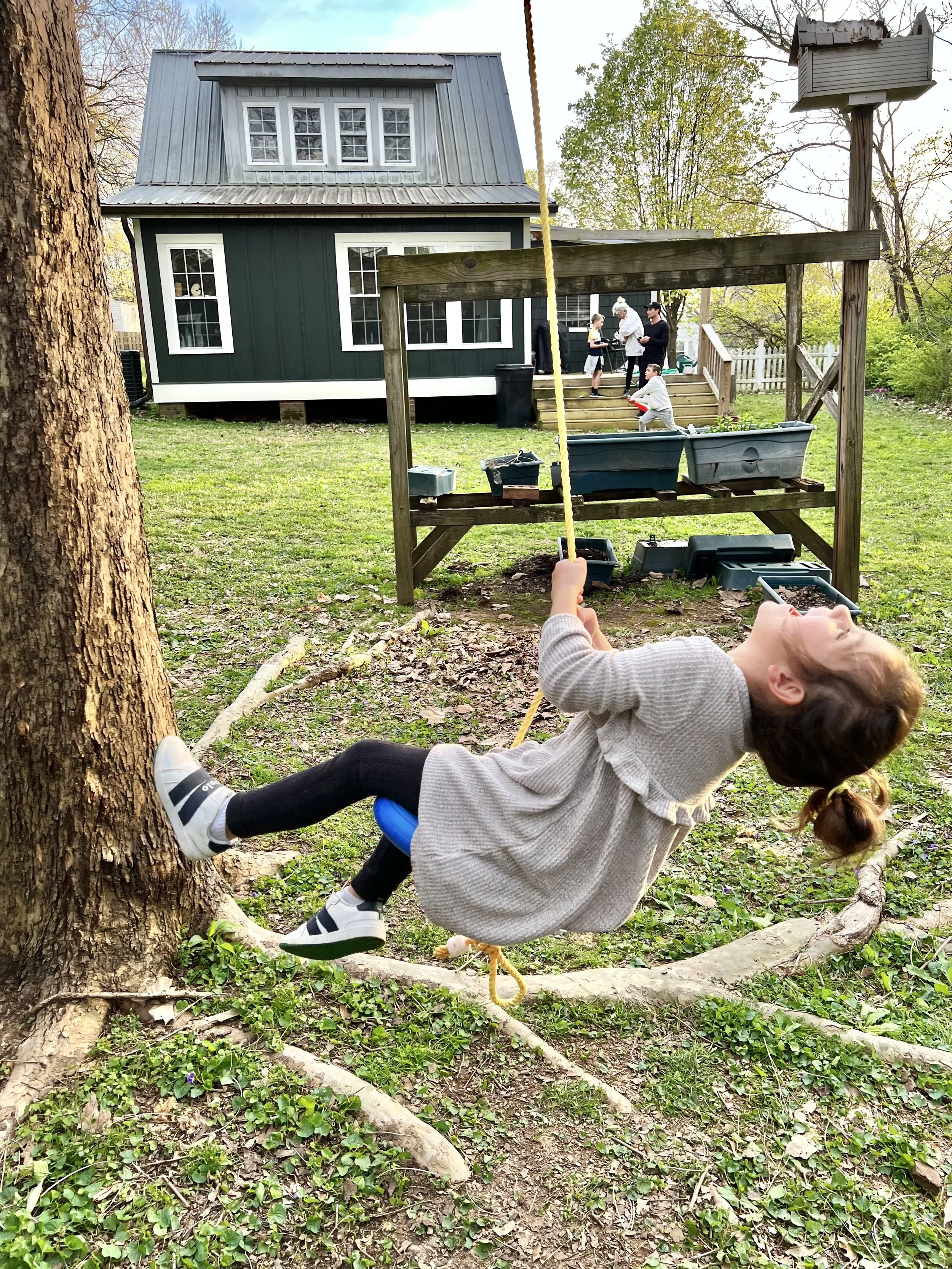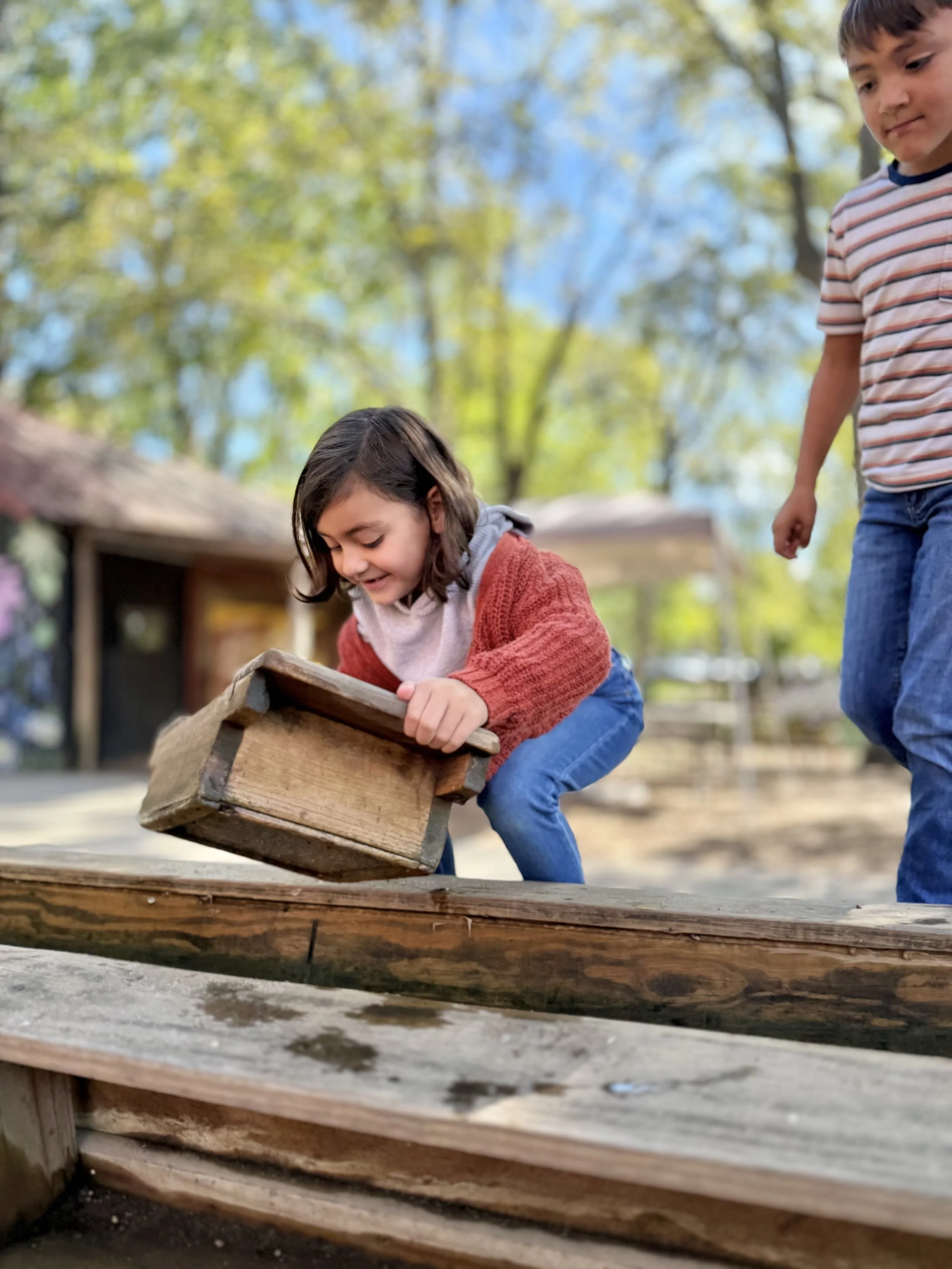Why We Should Let Our Kids Lead Their Own Play
When PJ and I watch the kids play together (no timer, no structured game, no one delegating their activity for the day), those are often my favorite moments. There’s something electric about the freedom in their wild, unruly ideas.
But it’s not just nostalgic or cute. Science and child-development experts say those free-for-all playtimes are incredibly important. When we step back instead of stepping in, we’re handing them a gift: autonomy, resilience, creativity, and more.
Here’s why unstructured, child-led play is one of the best things we can leave on their calendars.
What “Unstructured Play” Actually Means (And What It Isn’t)
First, a quick definition: unstructured play (also called free play) happens when children direct the play themselves, AKA no fixed rules from adults, no orchestrated agenda. They can choose what, how, where, and when they play.
This is different from organized sports, guided activities, or adult-led “learning through play.” The difference is subtle but crucial: it’s their choice.
The Benefits Are Deep and Wide
Here are the biggest ways unstructured play helps children grow, backed by research:
1. Creativity, Imagination & Problem Solving
When play isn’t dictated, kids invent worlds, adapt rules, test ideas. This kind of open-ended exploration boosts creative thinking and flexibility.
A 2023 literature review on loose-parts play (toys and materials that can be used in many ways) found it supports executive function, reasoning, and cognitive self-regulation.
2. Autonomy, Confidence & Decision Making
When kids lead play, they practice decision-making: “What do I do now? Who gets to play first? How do we solve this conflict?” Over time, they become more empowered and confident.
One article in The Many Wondrous Benefits of Unstructured Play from APA points out that kids “flex their creative muscles” and “engage organically with peers” when adults step back.
3. Social Skills, Conflict Resolution & Empathy
Free play with peers teaches negotiation, listening, sharing, compromise, and self-regulation. Since kids are making the rules and adjusting them, they’re also learning how to manage group dynamics and emotions.
In one school’s case study, increasing free play time allowed children “to work through conflict without adult intervention,” improving mood, social bonds, and cooperation.
4. Executive Function, Focus & Self-Control
Unstructured play isn’t purely “fun”, it's serious brain training. It helps the brain practice organizing, sustaining attention, shifting strategies, and managing impulses.
Play-based learning (which includes free play) has been shown to sometimes outperform direct instruction in early learners, especially for spatial and math skills.
5. Emotional Resilience & Well-Being
Play gives children space to experiment with emotions, test boundaries in low stakes, and recover from small setbacks. It’s a natural stress–reliever.
One study of preschoolers found that adding loose-parts unstructured play plus mindfulness significantly boosted happiness and playfulness.
Why We Resist (And How to Gently Release Control)
We stay in the driver’s seat for all kinds of reasons: safety fears, the pressure to “optimize” every moment, the guilt that doing nothing feels like doing nothing. But here’s how to reframe it:
Trust grows slowly — we don’t flip a switch and vanish. Start small: give them 10 or 15 minutes of totally unscheduled time each day, observe, resist intervening.
Set gentle boundaries, not strict scripts — “You can play anywhere in the yard” is safer than saying “Here’s what you must do.”
Offer open-ended materials — sticks, fabric scraps, boxes, paint, clay, loose parts. These aren’t “extra toys,” they’re invitations.
Step in only when asked (or needed for safety) — Sometimes conflict or frustration bubbles up, and that’s when your voice matters. Otherwise, let them figure it out.
Celebrate failure and shifts — One of the greatest lessons of their self-directed play is that it’s okay for things to go sideways; that insight strengthens resilience.
What Happens If We Don’t Let Them Lead?
The decline in unstructured play in recent decades is alarming to developmental experts.
Over-scheduling and overly structured childhood may deprive kids of essential skills: creativity, confidence, patience, the ability to fail and try again.
One study argues that limiting free play in schools diminishes opportunities for equity: children in lower-income settings especially may lack safe spaces for unstructured play unless schools allow it.
When you see your kid lost in their own game, like digging a tunnel in the dirt, turning chairs into boats, negotiating roles with their siblings over the flimsiest props, that's where the unseen work happens. That’s where our job shifts: we stop being the director and become a witness.
We’re not handing over control because we don’t care. We’re handing it over because we trust them. Because we believe that in those unguarded, messy, wild, unplanned minutes, they’re doing more than playing. They’re becoming.


